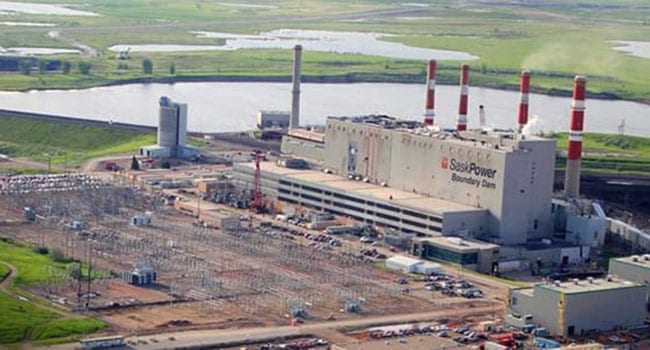By Dónal Gill
Research Associate
Frontier Centre for Public Policy
The Frontier Centre for Public Policy recently released Running Hard to Adapt in a Dangerously Fast-Changing Industry by Ian Madsen, a senior policy analyst with the centre. The paper conducts an in-depth valuation and strategic appraisal of SaskPower, using an intrinsic value method and market-based valuation system.
Established in 1923, SaskPower is responsible for providing electricity throughout Saskatchewan, serving over 522,000 customers.
Unlike some of its Crown utility peers in Canada, it’s not in bad financial condition. The company has negative free cash flow and low returns on assets, equity and capital employed. Utilities usually pay a dividend to investors.
The company shows sufficient income to pay a dividend but, given current low cash generation, investors may not consider the dividend sustainable. However, if the firm can show a credible, viable plan of redirection and commercial success and resilience to challenges, a share flotation could be successful, which could lead to a dividend. But if its debt burden was lower, the sale would be smoother.
Analyzing SaskPower’s future from a public choice perspective, Madsen argues that this Crown corporation’s long-term future is safest in private, rather than public, hands.
While it was once convention and accepted wisdom that slow-change industries such as electric utilities were effectively insulated from the risks that plague other economic sectors, it’s increasingly apparent that this is no longer the case.
Furthermore, private companies generally outperform those within the realm of or totally owned by government. The risks inherent in dynamic economic, business and technological climates are better taken on by private investors than put on the shoulders of provincial or national taxpayers.
We increasingly see the electric utilities sector shift slowly but surely toward a new paradigm. As Madsen points out, in the present situation, Saskatchewan taxpayers are the ultimate stakeholders in SaskPower and ought not to bear the risks inherent in this emerging marketplace.
In this changing environment, it’s more important than ever that Crown corporations such as SaskPower be protected from the potential for mismanagement and meddling that comes with government control.
Madsen acknowledges that SaskPower has been mercifully devoid of major political meddling throughout its history, but that the potential for this – especially considering the often-conflicting agendas and incentives of electoral and economic imperatives – can never be discounted.
As the energy and electrical utility sectors evolve amidst projections for low demand growth for electricity in North America, it’s vital that SaskPower continues to be nimble and dynamic. Forays into carbon sequestration, and wind, solar and peaking gas-fired power offer some positives in this regard. It has also made investments in smart-grid management, which should help it adjust to a more variable, less predictable demand and supply future.
Even harder to do will be to make SaskPower, whether or not it’s divested in whole or in part, a flexible, versatile, dynamic and fast-evolving competitive, customer-responsive player in the new energy marketplace, given its limited potential roster of customers.
It could actually become so, as its large fleet of gas-fired generation plants make it a flexible ideal virtual battery for intermittent wind and solar power elsewhere in North America. This may require additional capital investment, and of the right kind (possibly expensive and extensive high-voltage direct current transmission lines), with the right strategy, to become successful and a valuable company for its new owners, or at least, to not be a burden if it stays a Crown entity.
Ultimately, while the present and median-term future looks reasonably solid, and SaskPower is certainly better run than a typical Crown corporation, there are changes into the broader sector on the horizon that could yield considerable risk to taxpayers.
Protecting taxpayers from this risk is both a good unto itself and perhaps needed to provide the required capital investment necessary for SaskPower to reorient itself to meet tomorrow’s challenges head-on.
Dónal Gill is a research associate with Frontier Centre for Public Policy.
Dónal is a Troy Media Thought Leader. Why aren’t you?
The views, opinions and positions expressed by columnists and contributors are the author’s alone. They do not inherently or expressly reflect the views, opinions and/or positions of our publication.


